INTERNACIONAL
Officials in Biden admin worked to undermine Netanyahu after ceasefire talks collapsed, former aide says
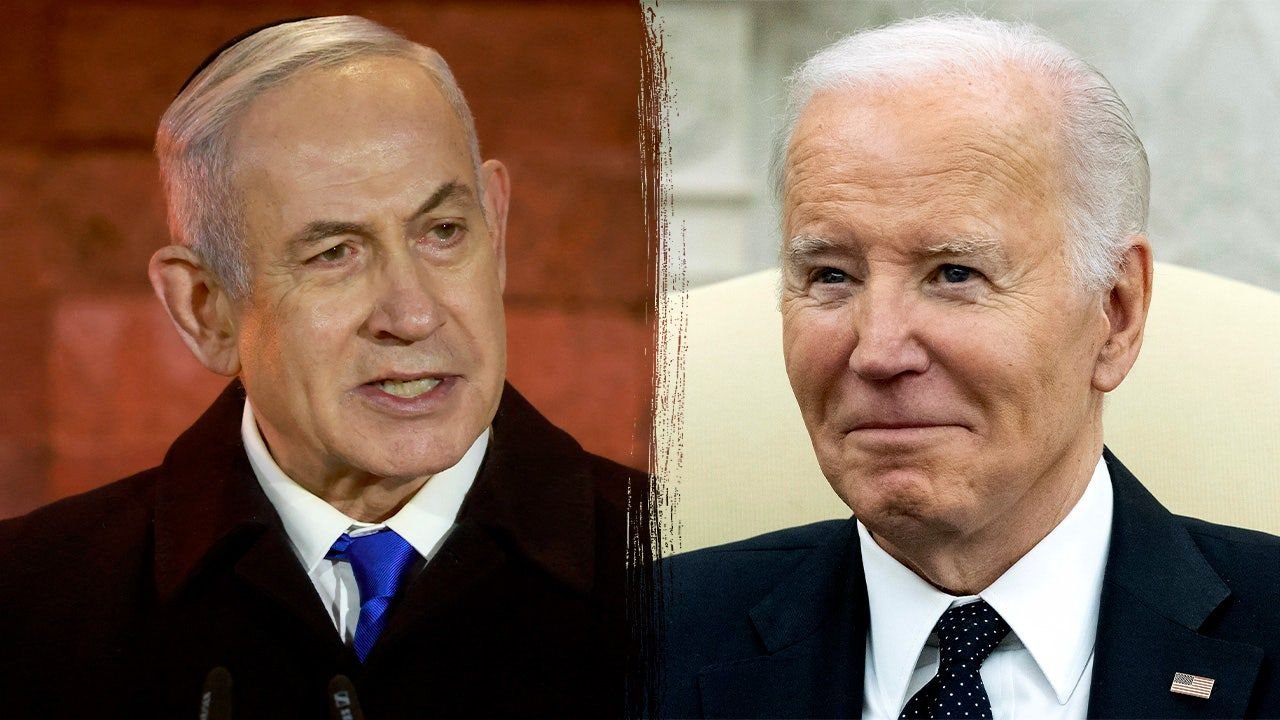
A new bombshell report on an Israeli TV news show revealed Biden officials discussed the idea of working to trigger an election with the hope of defeating Israeli Prime Minister Benjamin Netanyahu so they could push the president’s ceasefire deal.
The plan was ultimately blocked by the president.
One of the president’s advisors on the region said that after the first ceasefire deal in the Israel-Hamas war collapsed, the idea of working against Netanyahu started to circulate in President Joe Biden’s administration, according to former White House officials interviewed on Israel’s Channel 13 show «HaMakor.»
The idea floated was that Biden would give a speech directly to the Israeli public, presenting two options, according to his Middle East advisor Ilan Goldenberg. «A lot of people were talking about, including in the Oval Office at times, the idea of, like, the President going out and giving a speech. Benny Gantz (the opposition leader) was at 37 [seats] and Bibi was like at 15, right? Like, he was very weak. Joe Biden was still incredibly popular in Israel,» he claimed.
BIDEN CRITICIZES NETANYAHU OVER ISRAEL-HAMAS WAR, SAYS ISRAELI LEADER MAKING A ‘MISTAKE’
Israeli Prime Minister Benjamin Netanyahu meets with IDF commanders in the Netzarim Corridor in Gaza to discuss Hamas activity on Nov. 19, 2024. (Photo provided by TPS)
Goldenberg said, «The idea was that Biden would say you can end the war, get all the hostages out, get a deal that includes even, you know, maybe trying to have elements of Hamas leave — or you can keep doing what you’re doing, and Israel will be in a Forever War. Your sons and daughters are going to keep fighting. Most of the hostages are going to come home dead. The idea would be either to force Netanyahu to come on board with that or scramble Israeli politics and see if you could trigger elections. That’s what people were saying, like, ‘let’s just break this up because it’s not going anywhere good.’»
However, Goldenberg said Biden blocked the move. «I think at the end of the day, he [Biden] was uncomfortable with the idea of going out that directly against Netanyahu.»
At a moment when U.S.-Israeli cooperation was vital, the deep mistrust and personal tensions between former President Biden and Prime Minister Netanyahu threatened to derail key diplomatic opportunities. The recent report featured insights from nine senior Biden administration officials and sheds light on the complexities that defined their interactions.
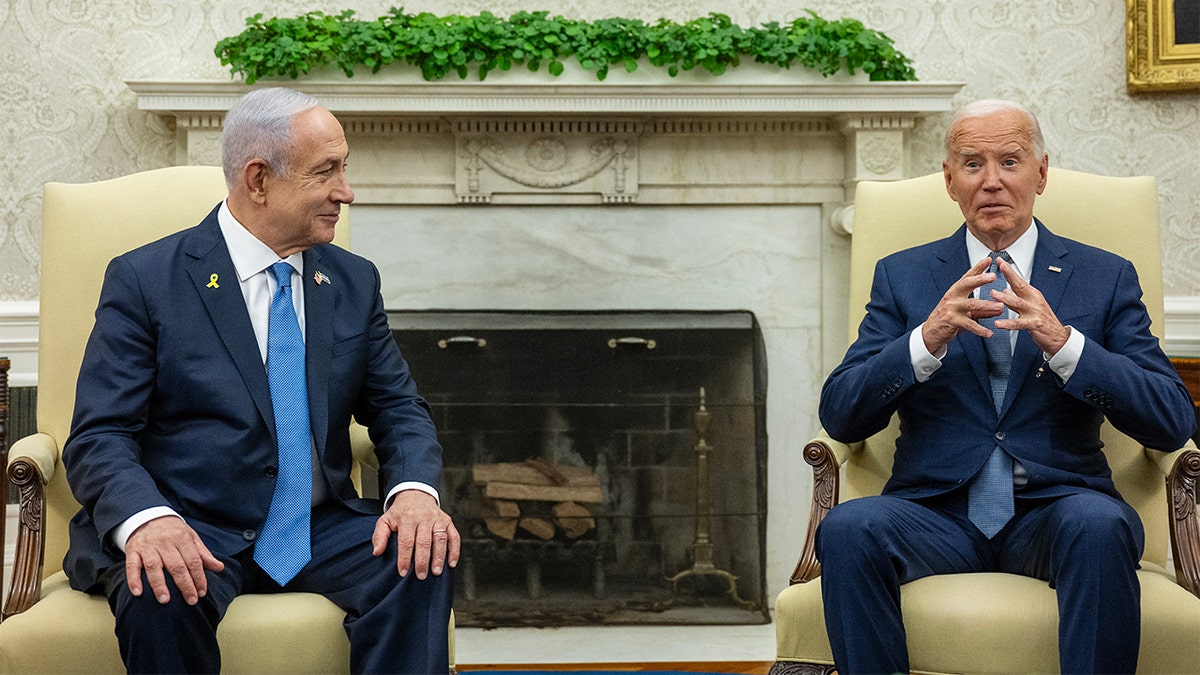
President Joe Biden meets with Israeli Prime Minister Benjamin Netanyahu in the Oval Office of the White House on July 25, 2024. (Jim Watson/AFP via Getty Images)
Tom Nides, former U.S. ambassador to Israel, recalled how the president frequently clashed with Netanyahu’s leadership.
«Biden didn’t really trust Netanyahu,» Nides said. «Netanyahu, I mean, come on everybody, he’s a survivor, a manipulator, you know, a magician when it comes to relationships. Biden saw all of that.»
KAMALA HARRIS’ PICK FOR JEWISH LIAISON DRAWS CRITICISM OVER ISRAEL, IRAN VIEWS: ‘RED FLAG’
Before Oct. 7, tensions focused on Netanyahu’s push for judicial reform, which sparked massive demonstrations and clashes among the Israeli public. «I was in the middle of all this… I had many a screaming match with Ron Dermer (Israel’s Minister of Strategic Affairs) about this,» Nides said. Biden repeatedly urged Netanyahu to slow down and seek consensus, while anxieties rose over figures like far-right nationalist Minister Ben Gvir.
«There were lots of anxieties over the issues around judicial reform, which I thought was insane,» Nides said.
The personal tension sometimes erupted publicly. When asked if Biden ever used harsh language for Netanyahu, Nides said, «President Biden likes to use colorful language, and on occasion, the prime minister was able to extract that colorful language from the president.» He said Netanyahu questioning Biden’s commitment to Israel particularly infuriated him.

This image, made from undated bodycam video footage taken by a downed Hamas terrorist and released by the Israel Defense Forces, shows a Hamas terrorist walking around a residential neighborhood at an undisclosed location in southern Israel. Israel’s military brought together a group of foreign correspondents on Monday, Oct. 16, 2023 to screen a 40-minute reel of gruesome footage compiled from the Hamas attack on Oct. 7. (Israel Defense Forces via AP)
After Oct. 7, when Biden became the first sitting president to visit Israel during wartime, tensions deepened as Netanyahu rejected U.S. plans for Gaza’s future. According to Michael Herzog, Israel’s then-ambassador to Washington, Biden believed Netanyahu was aiding Trump politically, while Netanyahu suspected Biden of deliberately «walking on his head.»
The tension extended to hostage negotiations. National Security Advisor Jake Sullivan said Hamas was reluctant to talk seriously for months. When asked if Netanyahu added conditions, he said, «I’m not saying that.»
Unlike their public statements, Arab leaders were quietly supporting Israel’s efforts to defeat Hamas, Dan Shapiro, former deputy assistant secretary of Defense, revealed in the interview. «They said very clearly, please tell the Israelis they have our support to wipe out Hamas,» he said.
CLICK HERE TO GET THE FOX NEWS APP
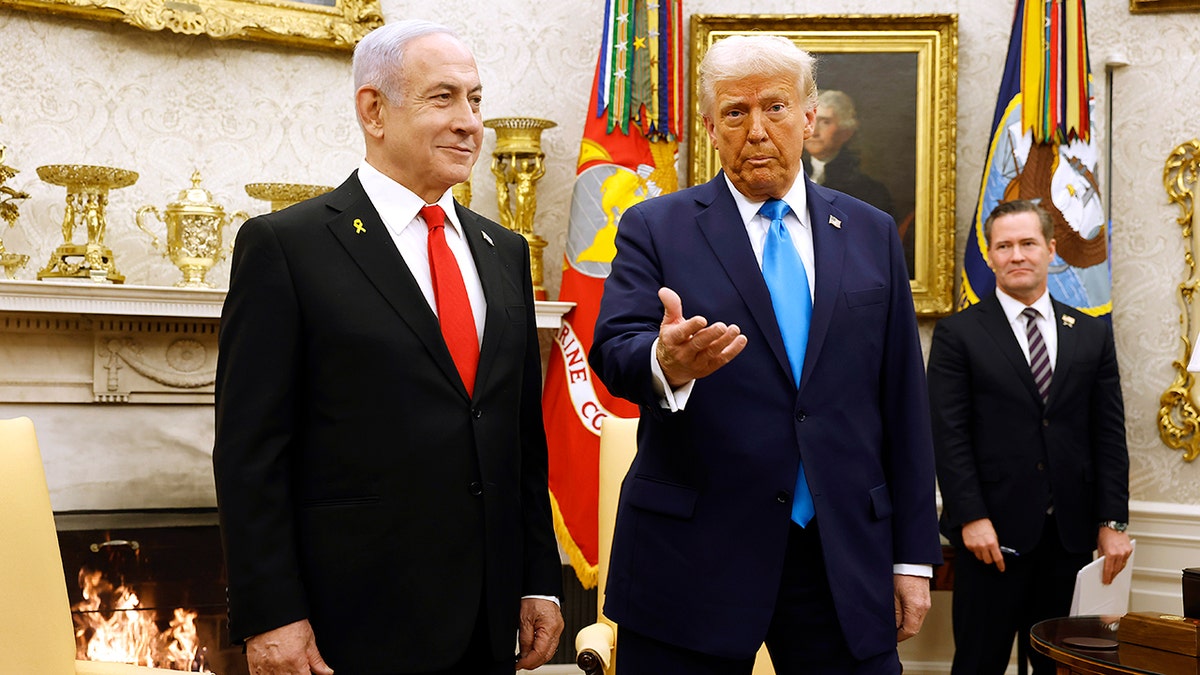
President Donald Trump and Israeli Prime Minister Benjamin Netanyahu meet at the White House on Feb. 4, 2025. (Anna Moneymaker/Getty Images)
At the same time, while tensions with Netanyahu were growing, a major opportunity was slipping away. Amos Hochstein, former U.S. special envoy for International Energy Affairs, called Saudi Arabia «the most important Muslim country in the world,» describing Crown Prince Mohammed bin Salman as a historic figure capable of reshaping the region.
Herzog, Israel’s former ambassador to Washington, confirmed that serious discussions had taken place about advancing normalization during the transition period before Trump could return to office. «Biden would bring Democrats, and Trump would bring Republicans,» Herzog explained, but said that Trump preferred to wait, not wanting to share the achievement. «I believe it will happen, I just don’t know when,» Herzog said.
Fox News Digital sent questions to former President Biden’s spokesperson for comment.
INTERNACIONAL
Asumió el nuevo primer ministro de Países Bajos: es el más joven de la historia y está en pareja con un argentino
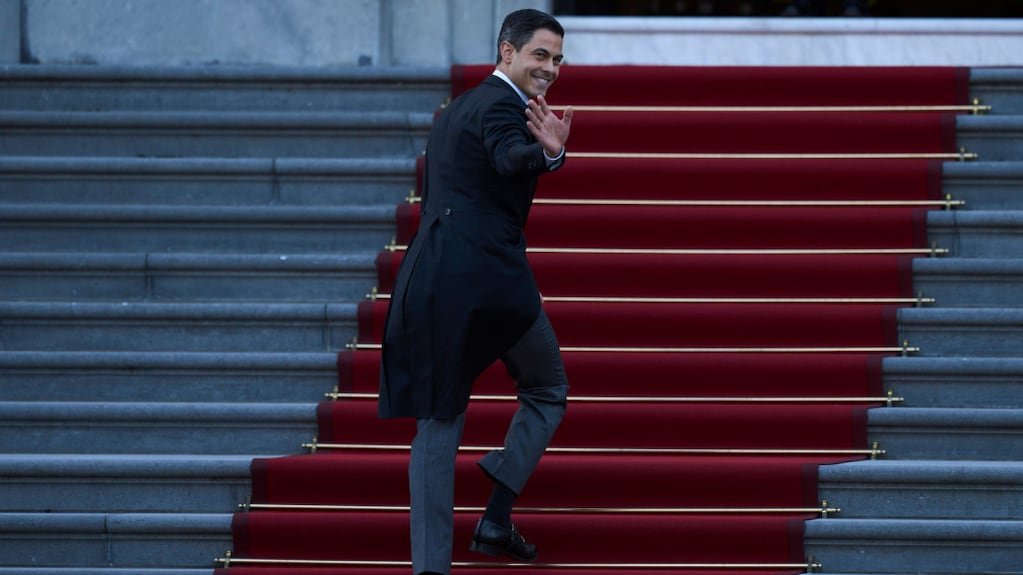
El liberal progresista Rob Jetten, pareja del jugador argentino de la selección masculina de hockey Nicolás Keenan, asumió este lunes como nuevo primer ministro de Países Bajos.
Jetten, líder de una coalición de centroderecha en minoría, juró el cargo ante el rey Guillermo Alejandro de Países Bajos, esposo de la reina Máxima Zorreguieta.
Leé también: Empezaron las obras de remodelación del Helicoide, el mayor centro de detención y torturas de Venezuela
De esa manera, comenzó una legislatura con una estabilidad cuestionada que dependerá de pactos con la oposición para sacar adelante su agenda.
Jetten, de 38 años, ganó las elecciones el 22 de octubre al imponerse al ultraderechista Geert Wilders. Así, se convirtió en el primer ministro más joven de la historia de su país.
Está comprometido con Nicolás Keenan, integrante de Los Leones, desde 2023. Hoy, el jugador argentino subió un video en sus redes sociales en el momento previo de la jura. .
Cómo será el nuevo gobierno neerlandés
El Ejecutivo de Jetten quedó investido tras la ceremonia de juramento ante el monarca en el palacio Huis ten Bosch, en la ciudad neerlandesa de La Haya, donde los ministros firmaron los decretos reales que formalizan el traspaso de poderes.
El gabinete, que gobernará en minoría, está compuesto por 18 ministros y 10 secretarios de Estado. Tras la ceremonia, los ministros posaron en la tradicional foto oficial en la escalera del palacio, una imagen reservada exclusivamente a los titulares de cartera y no a los secretarios de Estado.
El rey Guillermo junto al nuevo premier Rob Jetten y los nuevos miembros del gabinete (Foto: REUTERS/Peter Lous)
La distribución de cargos refleja el equilibrio interno de la coalición en base a la representación parlamentaria de cada partido socio del gabinete: el liberal de izquierdas D66 aporta diez miembros al gabinete, el liberal de derechas VVD nueve y el democristiano CDA ocho.
Completa el gabinete la independiente Sandra Palmen, secretaria de Estado responsable del proceso de reparación del escándalo de las ayudas sociales a padres con hijos.
Leé también: Ola de violencia en México: escaparon 23 presos del penal de Puerto Vallarta
En su cuenta personal, Jetten publicó una fotografía junto a los futuros representantes de D66 en el Ejecutivo, acompañada de un mensaje en el que expresó su “orgullo por asumir la responsabilidad de gobernar y su compromiso de construir lo que puede ir mejor” para todos los ciudadanos.
El nuevo gabinete inicia así una legislatura marcada por la necesidad de negociar con la oposición para sacar adelante sus iniciativas, en un Parlamento fragmentado que anticipa una legislatura exigente para el Ejecutivo recién investido.
Cuáles son las prioridades del nuevo gobierno
El acuerdo de gobierno, presentado a finales de enero, fija como prioridades el aumento del gasto en defensa hasta el 3,5% del PIB, un mayor control del asilo y un papel más activo de Países Bajos en la Unión Europea (UE), con especial énfasis en seguridad, tecnología (semiconductores) y autonomía.
En materia migratoria y de asilo, apuesta por una línea más restrictiva y coordinada a nivel europeo. Además, buscará que las solicitudes puedan tramitarse fuera de Europa, con la intención de reducir las llegadas y evitar que los procedimientos se desarrollen en territorio neerlandés.
El texto contempla acelerar procedimientos, reforzar centros de régimen estricto y, en caso de aumentar la presión migratoria, suspender temporalmente la reagrupación familiar.
Leé también: Escándalo en el Reino Unido: detuvieron al exembajador en EE.UU. por sus vínculos con Jeffrey Epstein
El nuevo gobierno también sitúa a la UE en el centro de su política exterior y defiende decisiones por mayoría cualificada en política exterior y seguridad, endurecer los mecanismos contra Estados miembros que vulneren los principios comunitarios y mantener el compromiso con el apoyo militar y financiero a Ucrania “de forma plurianual e ininterrumpida”.
El acuerdo señala que la relación transatlántica se mantendrá, aunque Países Bajos se reserva el derecho de “interpelar de forma creíble” a Washington cuando sus acciones afecten a valores e intereses europeos. Finalmente, defiende un mayor énfasis en sanciones y protección de tecnologías sensibles frente a países como Rusia, China e Irán.
(Con información de EFE)
Países Bajos
INTERNACIONAL
Former Secret Service officials warn of low-tech threats facing Trump after latest Mar-a-Lago breach

NEWYou can now listen to Fox News articles!
A deadly confrontation at Mar-a-Lago, Florida, Sunday is the latest in a string of high-profile security incidents threatening President Donald Trump, as former Secret Service officials warn that low-tech, lone actors now pose one of the toughest challenges to presidential protection.
«It should be quite clear to all of us by now that Trump is the most threatened president in the history of the U.S.,» former Secret Service agent William «Bill» Gage told Fox News Digital Monday, pointing to multiple high-profile incidents in recent years. Unlike past presidencies, where threat levels often subsided over time, Gage said, «the longer he’s president, the more these attacks keep happening.»
Gage said the most difficult cases to prevent are often the least sophisticated. The recent incidents, he noted, were «super low-tech attacks by people with zero training,» using rudimentary weapons. «If you were standing behind them in line at Starbucks, you wouldn’t have given them a second look,» he said.
Gage said the threat landscape shifted over the course of his 12-year career as a Secret Service agent. When he joined the Secret Service in 2002, he said the agency was moving away from what he described as the traditional «lone gunman» model — figures like Lee Harvey Oswald, who assassinated John F. Kennedy, or international militants such as «Carlos the Jackal,» one of the world’s most wanted terrorists in the ‘70s and ’80s — and adapting to a post-9/11 world focused on coordinated terrorist networks like al Qaeda and later ISIS.
A deadly confrontation at Mar-a-Lago, Florida, Sunday is the latest in a string of high-profile security incidents involving President Donald Trump. (Marco Bello/Reuters)
«But if you look at Butler and the two incidents at Mar-a-Lago, those were super low-tech attacks,» Gage said. «The low-tech actors are the ones that tend to slip through the cracks.»
He also warned of a potential copycat effect when details of such incidents become public.
«If it were up to the Secret Service, they would never report any of these incidents ever,» Gage said, arguing that widespread coverage allows others to «study what happened» and attempt to refine it.
In today’s hyperconnected political climate, he said, that dynamic adds another layer of complexity for agents trying to stop the next threat before it materializes.
In the early hours of Sunday, a 21-year-old man identified as Austin Tucker Martin of North Carolina was shot and killed by U.S. Secret Service agents and a local sheriff’s deputy after entering the secure perimeter of Trump’s Mar-a-Lago resort in Palm Beach, Florida.
Authorities say Martin drove through the north gate carrying a shotgun and a gasoline can. After being ordered to drop both, he dropped the can but raised the shotgun toward officers, who fired and killed him at the scene. Trump and First lady Melania Trump were in Washington at the time.
The incident marked the third highly publicized security encounter involving Trump in less than two years.
In July 2024, a gunman opened fire at a campaign rally in Butler, Pennsylvania, grazing Trump’s ear and killing an attendee before being shot by a Secret Service sniper.
In September 2024, a man armed with a rifle was confronted by agents near Trump’s golf course while he was playing; that suspect was later convicted on attempted assassination charges.
While the incidents have drawn intense attention, former Deputy Assistant Director Don Mihalek said the latest Mar-a-Lago intrusion does not necessarily signal a breakdown in protective systems.
«He got through an exterior gate of an active club,» Mihalek told Fox News Digital. «This wasn’t someone reaching the president’s residence.»
Agents confronted the suspect within seconds, he said, describing the rapid response as evidence that overlapping security layers functioned as designed.
Mihalek said presidential protection relies on multiple rings of security because outer perimeters at properties like Mar-a-Lago cannot be sealed in the same way as the White House.
«If he ended up in the president’s house on Mar-a-Lago, that might be a different conversation,» he said.
He also cautioned against viewing recent incidents in isolation, noting that presidents routinely face roughly 2,000 threats per year, most of which are mitigated before the public ever becomes aware of them.
«These just happen to be very public instances,» Mihalek said, arguing that the social media era amplifies perceptions of escalation.

Then-Republican presidential candidate Donald Trump is whisked away by Secret Service after shots rang out at a campaign rally at Butler Farm Show Inc. July 13, 2024, in Butler, Pennsylvania. (Jeff Swensen/Getty Images)
GUNFIRE, ARSON AND VANDALISM: TRACKING POLITICAL VIOLENCE IN AMERICA
Mihalek pointed to the 2024 rally shooting in Butler, Pennsylvania, as an example of how early intervention can be decisive, noting that local law enforcement had reportedly identified the suspect prior to the attack.
«If somebody had walked up and said, ‘Hey, who are you?’ we wouldn’t be talking about Butler,» he said.
As Trump prepares to address Congress at the State of the Union, both former officials said the security posture at the Capitol is unlikely to change in response to the weekend incident.
The annual address is designated a National Special Security Event — the highest level of federal security planning — triggering coordination among the Secret Service, U.S. Capitol Police, FBI, War Department and other agencies. The designation allows for expanded perimeter controls, airspace restrictions and continuity-of-government planning.

Barricades go up around the Capitol ahead of the State of the Union. (Kylie Cooper/Reuters)
CLICK HERE TO DOWNLOAD THE FOX NEWS APP
Gage, who previously led advance planning for State of the Union addresses, said the event operates under a well-established security «blueprint» built to account for worst-case scenarios. «There’s really no way to increase it anymore,» he said.
Both former officials said the defining challenge for presidential protection today is unpredictability: individuals with minimal training, rudimentary weapons and the ability to find reinforcement online. Unlike organized extremist networks, such actors may leave few detectable signals before acting.
homeland security,national security,donald trump
INTERNACIONAL
UK government to unseal former ambassador Mandelson documents tied to Jeffrey Epstein probe
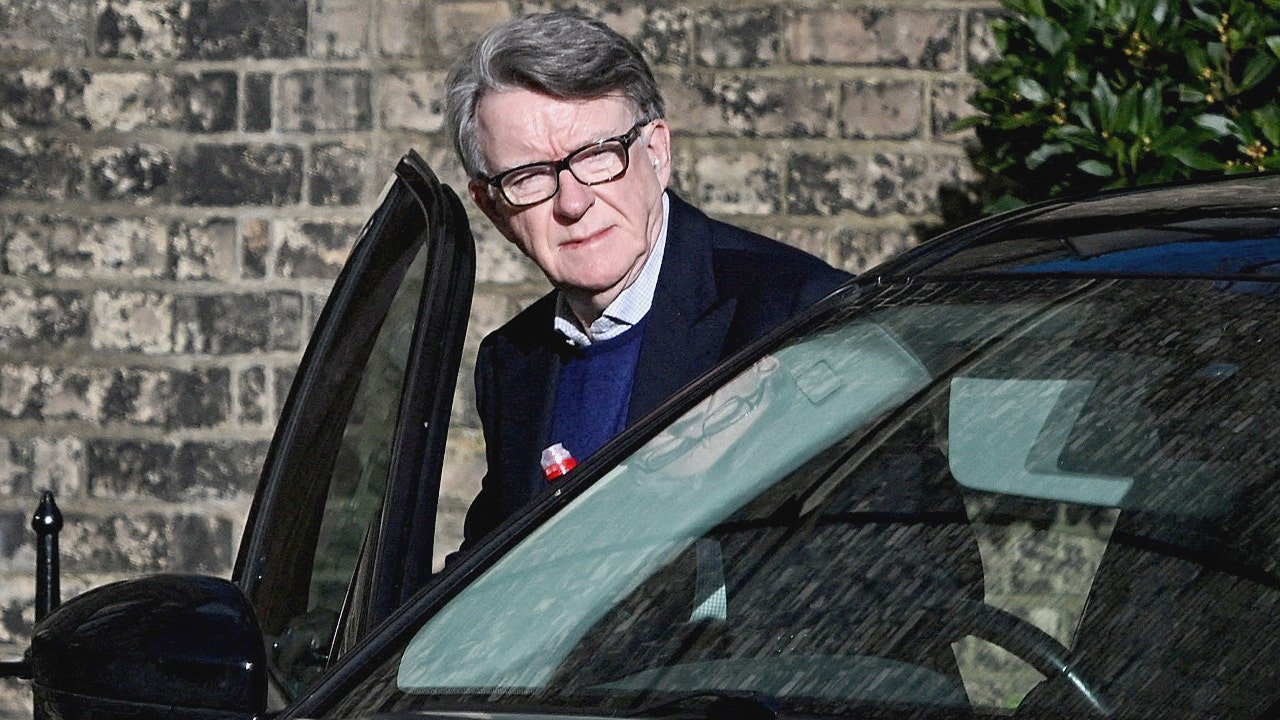
NEWYou can now listen to Fox News articles!
The UK government is set to unseal a first batch of key documents relating to Peter Mandelson’s appointment as ambassador to the U.S., MPs were told Monday.
The disclosure, set for «early March,» follows a Commons motion ordering the release of files related to Mandelson’s vetting for the post and comes in the wake of his arrest on suspicion of misconduct in public office.
«The government expects to be able to publish the first tranche of documents very shortly, in early March,» Darren Jones, chief secretary to Prime Minister Keir Starmer, told the House of Commons.
«I should, however, inform the House that it remains the case that a subset of this first tranche of documents is currently subject to the ongoing Metropolitan Police investigation,» he said.
British Prime Minister Keir Starmer, right, talks with Britain’s ambassador to the United States Peter Mandelson during a welcome reception at the ambassador’s residence in Washington, on Feb. 26, 2025. (Carl Court/Pool Photo via AP)
Jones added that «a small portion of that material engages matters of national security or international relations» and would be handled through the Intelligence and Security Committee, in line with the will of the House.
As previously reported by Fox News Digital, a Metropolitan Police spokesperson confirmed in a statement Monday that officers had arrested a 72-year-old man at an address in Camden and took him to a London police station for questioning.
The arrest follows revelations about Mandelson’s links to convicted sex offender Jeffrey Epstein and comes days after former Prince Andrew was detained.
The investigation relates to allegations that Mandelson shared confidential government information with Epstein while serving as business secretary.
DOJ PUBLISHES TROVE OF EPSTEIN FILES, SAYS MORE TO COME AFTER FRIDAY DEADLINE

Former British Ambassador to the U.S. Peter Mandelson enters a vehicle outside a reported residence, after police launched a misconduct in public office investigation. (Reuters)
Police had opened a criminal inquiry after the government passed on communications between the former ambassador and the disgraced financier.
Emails released by the U.S. Department of Justice also appeared to show Mandelson sharing market-sensitive information with Epstein during the 2008 financial crisis.
Mandelson has denied wrongdoing and said he does not recall the alleged disclosures and apologized to Epstein’s victims for maintaining contact with him after his conviction.
On Feb. 4, Starmer told the Commons: «I’m as angry as anyone about what Mandelson has been up to. The disclosures … are utterly shocking and appalling. He has betrayed our country. He has lied repeatedly. He is responsible for a litany of deceit.»
UK TO RELEASE FILES RELATED TO FORMER AMBASSADOR’S JEFFREY EPSTEIN TIES

Jeffrey Epstein was found dead in federal custody in 2019. (New York State Sex Offender Registry via AP, File)
Starmer later said that if he had known then what he knows now, Mandelson «would never have been anywhere near government.»
Mandelson, an architect of New Labour, was appointed U.S. ambassador before being dismissed in September 2025 as scrutiny over his links to Epstein intensified.
He resigned from the Labour Party and stepped down from the House of Lords.
CLICK HERE TO DOWNLOAD THE FOX NEWS APP
As U.S. ambassador, Mandelson scored an early victory by ensuring Britain was the first country to agree to a deal with the U.S. to lower some of President Donald Trump’s tariffs, but was fired a few months later.
Starmer has also faced calls to step down over Mandelson’s appointment, Reuters reported.
uk politics,investigations,appointments,jeffrey epstein

 ECONOMIA3 días ago
ECONOMIA3 días agoVillarruel cuestionó la apertura de importaciones: «Sin industria, se pasa a depender de China»

 POLITICA2 días ago
POLITICA2 días ago“Ahora es la hora de jugarse”: el mensaje de Patricia Bullrich a los empresarios tras aprobarse la reforma laboral

 ECONOMIA2 días ago
ECONOMIA2 días agoSegún un especialista, el precio de la carne se mantendrá alto “entre dos y tres años”















